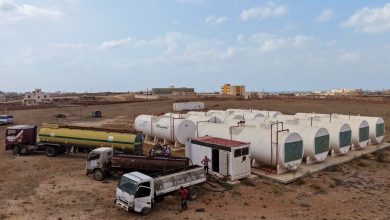A new report by the United Nations High Commissioner for Refugees (UNHCR) reveals a staggering rate of displacement over the past decade, with an average of 70,000 people displaced daily due to weather-related disasters. The report estimates the total number of people displaced by such events at 250 million.
The UNHCR report, released in conjunction with the UN Climate Conference (COP30) in Brazil, highlights the severe impact of climate change on vulnerable populations. It notes that approximately three-quarters of the 117 million people displaced by conflict by mid-year are residing in countries highly susceptible to climate risks.
Climate Shocks Undermine Recovery
The report warns that climate shocks are pushing already fragile communities to the brink, undermining their ability to recover and exacerbating humanitarian needs. This also increases the risk of repeated displacement.
Resource Scarcity Intensifies
The UNHCR emphasizes that essential systems people rely on for survival are under immense pressure in many regions. For example, in flood-affected areas of Chad, newly arrived refugees from Sudan receive less than 10 liters of water per day, far below emergency standards.
The report projects that by 2050, the hottest refugee camps could face nearly 200 days of dangerous heat stress annually, posing severe risks to health and survival. Many of these locations could become uninhabitable due to the lethal combination of extreme heat and high humidity.
Environmental Degradation Compounding Challenges
Environmental degradation is further deepening the challenges faced by communities. New data in the report reveals that three-quarters of Africa’s land is deteriorating, and over half of the continent’s refugee and internally displaced person settlements are located in areas facing severe environmental stress, reducing access to food, water, and income. Despite the grim situation, the report emphasizes that action is still possible to mitigate the worst effects.




